

Encyclopedia Dubuque
"Encyclopedia Dubuque is the online authority for all things Dubuque, written by the people who know the city best.”
Marshall Cohen—researcher and producer, CNN
Affiliated with the Local History Network of the State Historical Society of Iowa, and the Iowa Museum Association.
CAMP UNION
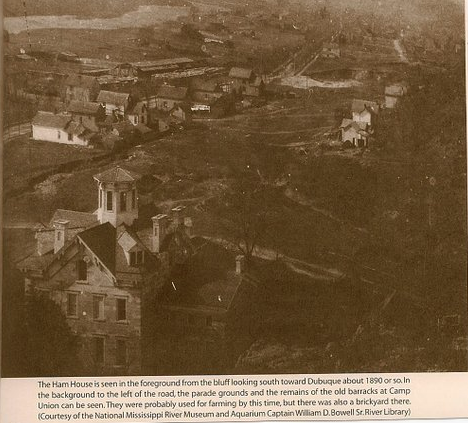
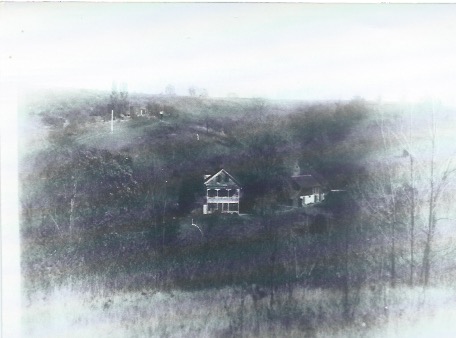
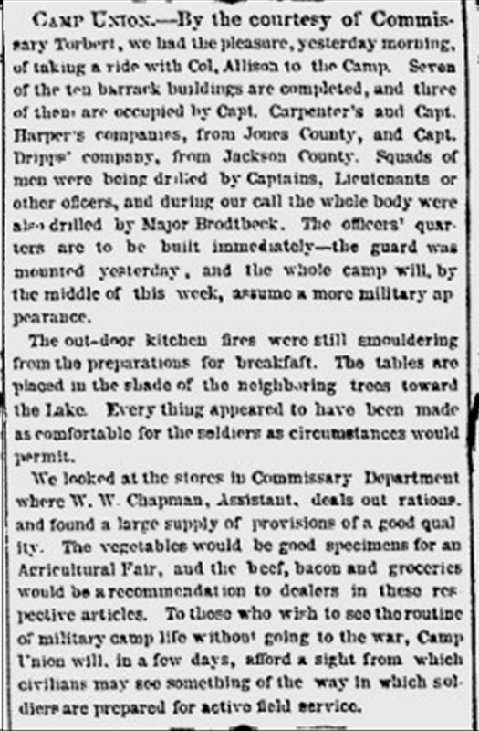
CAMP UNION. In August, 1861 a representative of Governor Kirkland came to Dubuque to make arrangements for the establishment of Camp Union to receive volunteer regiments for service in the CIVIL WAR. (1)
The site selected was at the upper end of the bottom land adjoining LAKE PEOSTA on an elevation of thirty to forty feet. The grounds were perhaps named Camp Union as they were the site used by the UNION GUARDS for drill. In August, 1861 the camp was opened as a recruiting center for the Ninth and 12th Iowa Volunteer Infantry. There were ten barracks, bathing in the river during the summer, and outdoor cooking and eating sites. Within one month of its opening, the camp contained six hundred soldiers. (2)
The buildings constructed were 20 x 60 feet and arranged to accommodate 100 men each. (3) The first troops to enter the camp had previously been quartered in various hotels.
Camp Schedule (4)
5 o'clock, a. m. --Reveille
5 1/2 to 6 1/2 --Schools for Officers of Comp. Drill for Privates
6 1/2 a. m.--Breakfast Call
7 1/2 a.m. Surgeon's Call
8 a.m.--Guard Mounting
8 1/2 to 10 1/2 Schools for Officers and Comp. Drill for Privates
12m.--Dinner Call
2 to 3 p.m.-- Comp. drill
4 to 5 p.m.--Battalion Drill
6 1/2 p.m.--Supper Call
9p.m.--Tattoo (9 1/4--Roll Call)
10 p.m.--Taps
Just two weeks after the camp was opened, the following appeared in the "Dubuque Herald:"
We are informed that the
officers of the camp prefer
not to have spiritous (sic)
liquors sent to the volunteers.
The same value extended in some
other way might be quite as
gratifying to the donors and as
thankfully enjoyed by the
recipients. (5)
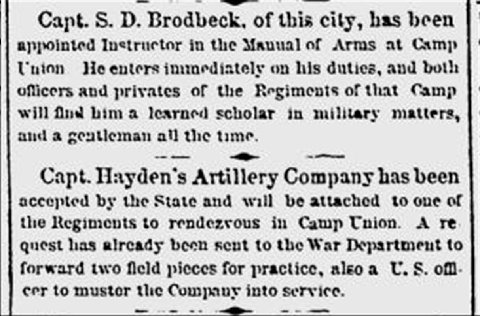
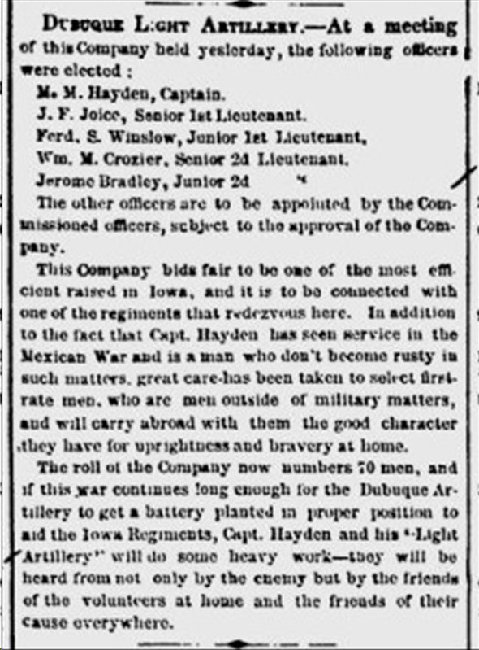
The camp was later renamed Camp Franklin. The entire camp was closed in January 1863 with the barracks sold at auction in January 1863 for $1,564 and dismantled a month later. (6) The sale was not popular. Officers and friends of the 12th Regiment which recruited here wanted to use the buildings since they were "lined with straw, warm and comfortable." (7) The reason given by the "Dubuque Herald:"
The governor says that no
more troops will be rendezvoused
in Dubuque, so notoriously
secessional (sic) is the character
of its leading citizens. (8)
Years later, the site was known as Rhomberg Park and still later the area along Rhomberg Avenue was occupied by the Eagle Point Apartments still visible in 2015. (9)
---
Source:
1. Oldt, Franklin T. History of Dubuque County, Iowa. Online: http://www.ebooksread.com/authors-eng/franklin-t-oldt/history-of-dubuque-county-iowa-being-a-general-survey-of-dubuque-county-histor-tdl/page-30-history-of-dubuque-county-iowa-being-a-general-survey-of-dubuque-county-histor-tdl.shtml
2. Reber, Craig D. "Dubuque Home for Military Training," Telegraph Herald, April 13 2011, p. 6
3. Oldt, Franklin T.
4. Ibid.
5. Ibid.
6. Ibid.
7. "Sold." Dubuque Democratic Herald, January 16, 1864, p. 4. Online: https://news.google.com/newspapers?nid=A36e8EsbUSoC&dat=18640116&printsec=frontpage&hl=en
8. Oldt.
9. http://www.towncrierdubuque.com/the_town_crier/camp-union